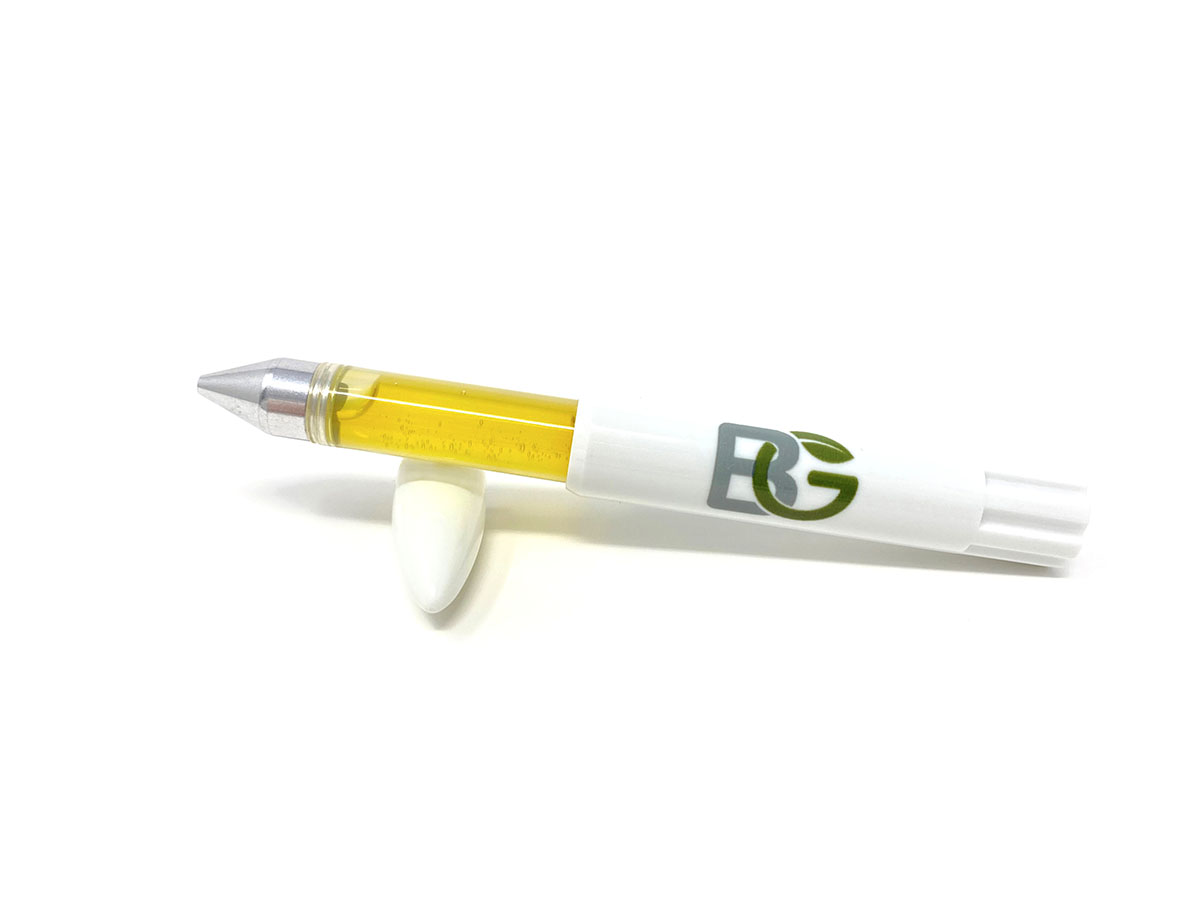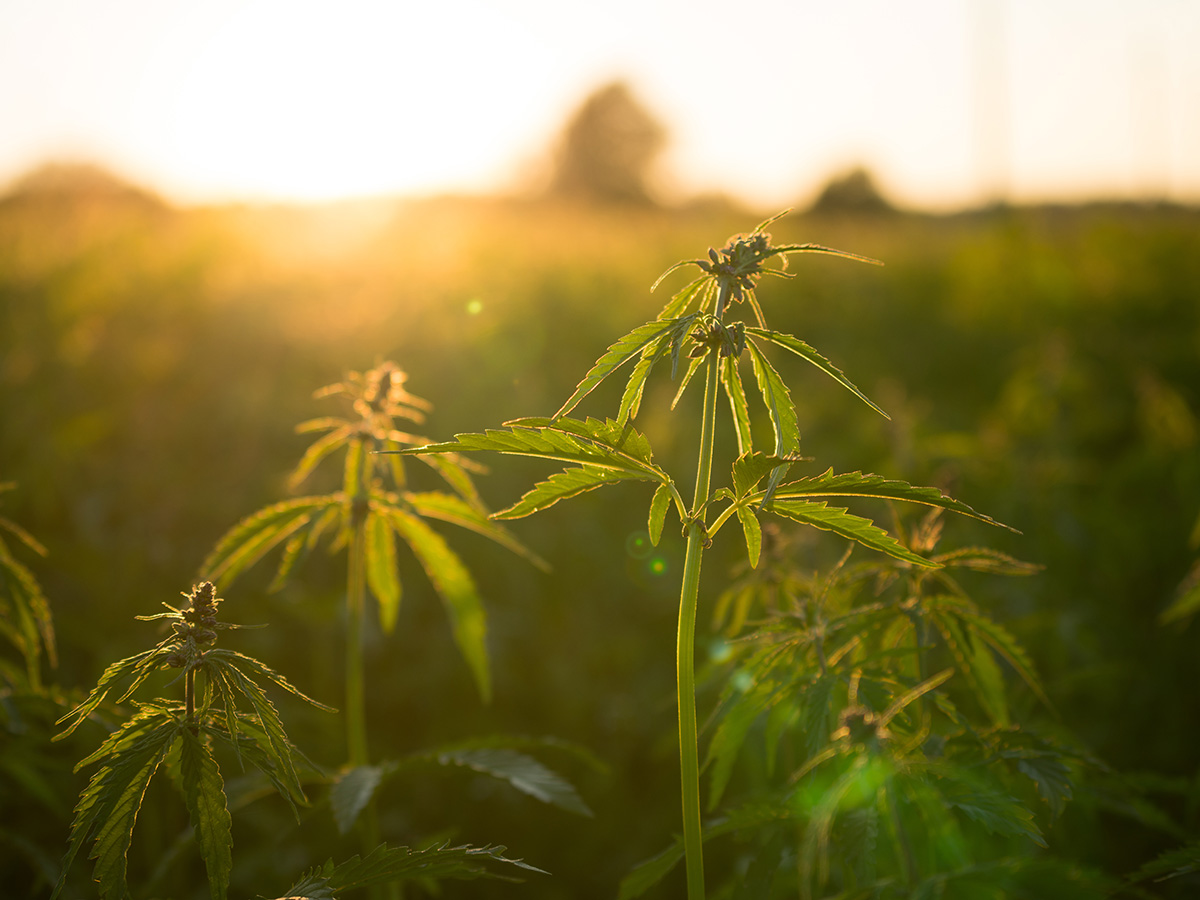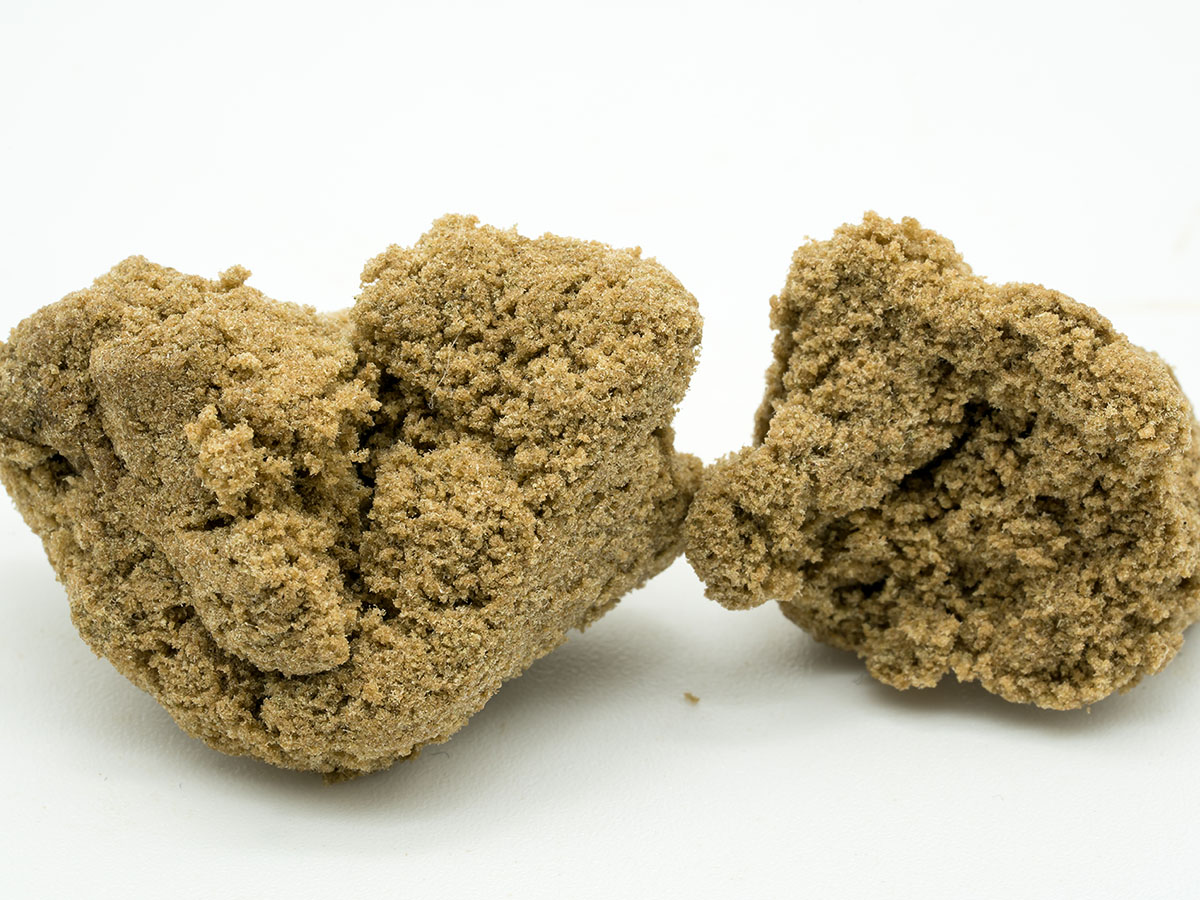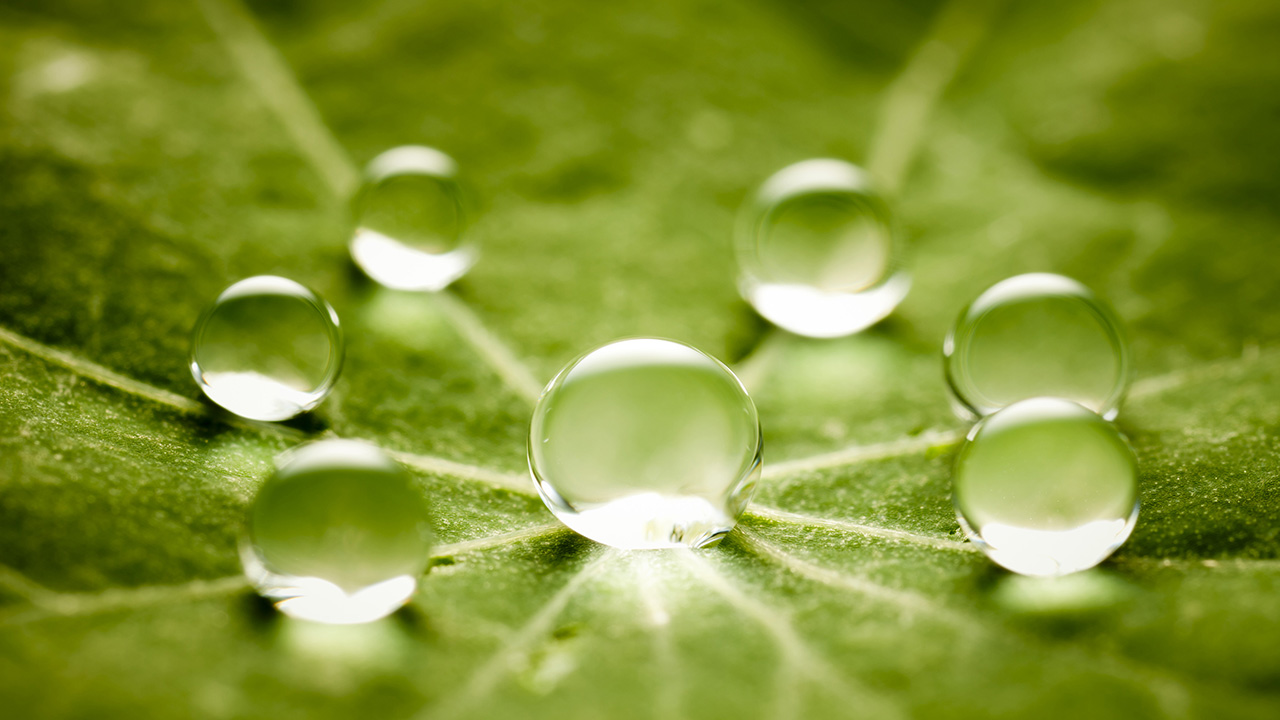
The Entourage Effect: What Does It Feel Like?
November 02, 2025
Each cannabis compound produces its own effects when consumed, but did you know they can become even more potent when combined? This phenomenon is known as the entourage effect. While cannabinoids and terpenes are powerful on their own, the entourage effect suggests that they work even better together, enhancing and balancing each other’s effects.
High Points
- The entourage effect refers to the synergistic interaction between cannabis compounds—cannabinoids, terpenes, and flavonoids—that enhances and balances their effects compared to using isolated compounds like THC or CBD alone.
- Full-spectrum cannabis products, which contain a wide range of naturally occurring compounds, are believed to provide the strongest entourage effect and can be consumed in forms like tinctures, oils, or flower.
- The entourage effect is not exclusive to cannabis—it’s also been observed in other plants (like turmeric with black pepper). Personal experiences vary, so consumers are encouraged to find the strains and product types that work best for them.
The entourage effect continues to be widely discussed and researched in the cannabis world. In this guide, we’ll explore everything you need to know about it—what it is, how it works, what it feels like, and why it matters.
What Is the Entourage Effect?
The entourage effect is the theory that all compounds found within the cannabis plant work together to create nuanced effects in the body, more so than they do when consumed on their own.1 Cannabis contains a whole host of compounds—hundreds of cannabinoids (like THC and CBD) and terpenes,1 plus more than 20 flavonoids.2
When you consume cannabis products that contain a full array of cannabinoids, terpenes, and flavonoids (known as full-spectrum products), these compounds trigger simultaneous interactions within your endocannabinoid system. The combination of all those interactions is called the entourage effect, and it creates the unique experiences we attribute to different marijuana strains and formulations.1
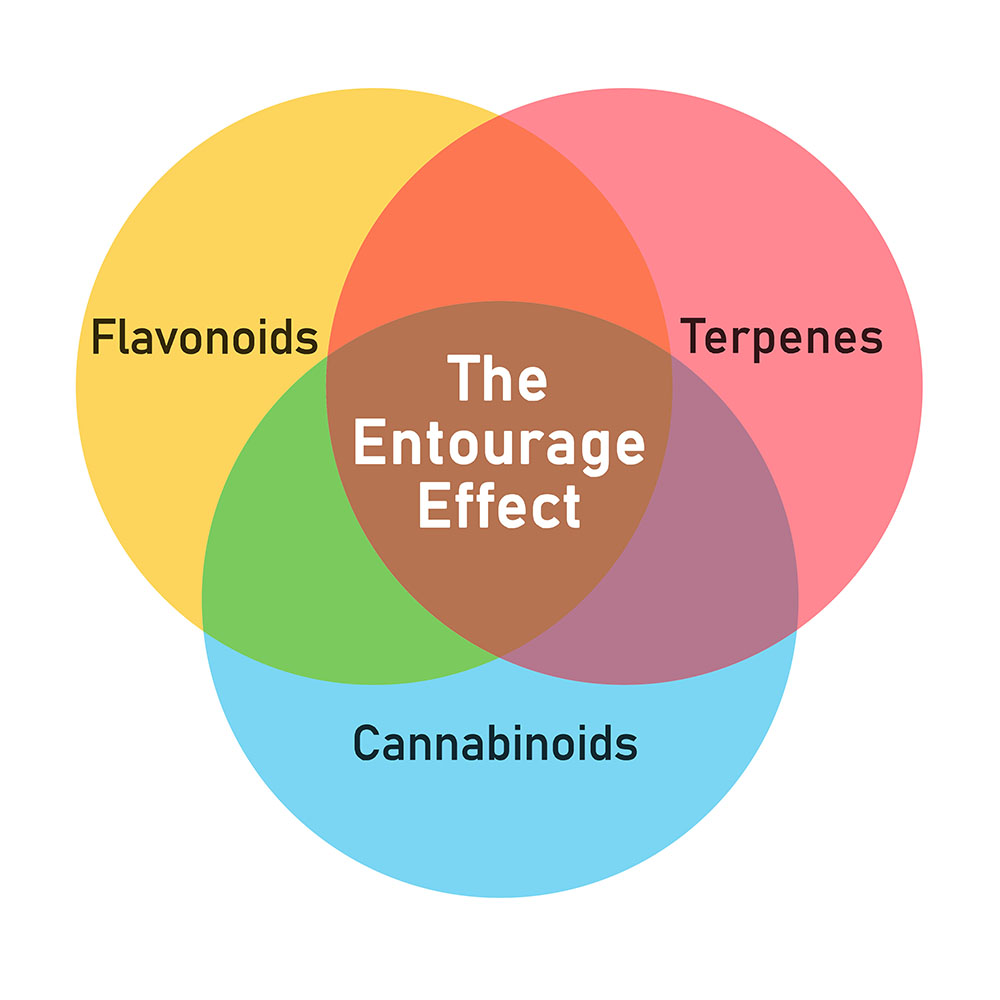
How Does the Entourage Effect Work?
The entourage effect is primarily driven by the interaction of three groups of compounds found in cannabis:
- Phytocannabinoids: These are the naturally occurring cannabinoids produced by the cannabis plant (from the Greek "phyto," meaning "plant"). The most well-known phytocannabinoids include THC (tetrahydrocannabinol), which is responsible for cannabis’s psychoactive effects, and CBD (cannabidiol), known for its potential medicinal benefits. Other cannabinoids, such as CBG, CBN, and CBC, may also contribute to the entourage effect.1
- Terpenes: These aromatic compounds give cannabis its distinct smell and flavor, but their role extends beyond sensory appeal. Terpenes are found in nearly all plants and have been studied for their potential therapeutic uses. If you’ve ever partaken in aromatherapy, then you’ve experienced terpenes at work. They may enhance and balance the effects of cannabis compounds in the body.1 For example, pinene may counteract THC’s memory-impairing effects3 and myrcene could possess powerful muscle-relaxant and pain-relieving properties.4 Studies on these possible effects are ongoing.
- Flavonoids: These compounds contribute to the color, taste, and aroma of cannabis and may have their own pharmacological effects. Flavonoids are also believed to work alongside cannabinoids and terpenes to influence cannabis's overall effects.1 For example, cannflavin A and B, compounds found only in the cannabis plant, may have anti-inflammatory and neuroprotective properties.5
The Relationship Between the Entourage Effect and the Endocannabinoid System
The entourage effect occurs within the endocannabinoid system (ECS), a body-spanning network of messengers (or endocannabinoids) and receptors that play a role in regulating internal functions such as mood, pain sensation, appetite, and immune response.6 When cannabis is consumed, its compounds interact with these receptors in complex ways:

- Phytocannabinoids bind with or influence our endocannabinoid receptors, mimicking the activity of our body's naturally occurring endocannabinoids.6
- Terpenes may modulate how cannabinoids interact with the ECS, potentially altering their effects—some enhancing THC’s psychoactivity, others counteracting certain side effects.7 The terpene beta-caryophyllene can also interact directly with endocannabinoid receptors.8
- Flavonoids contribute additional therapeutic properties with their powerful antioxidant and anti-inflammatory capabilities. Found across many other plant species, flavonoids require more research to fully understand how they factor into the entourage effect.9
These simultaneous interactions may explain why full-spectrum or “whole-plant” cannabis extracts often produce more beneficial effects than isolated THC or CBD taken alone.7
the Entourage Effect in Action
While the entourage effect is still just a theory, it’s also something we can observe anecdotally in real-world cannabis use. Below, we explore key examples of how cannabis compounds work together to shape their effects.
Taking CBD with THC
Combining THC (tetrahydrocannabinol) and CBD (cannabidiol) can create a more balanced cannabis experience because CBD may be able to moderate the effects of THC. While THC is responsible for cannabis’s psychoactive high, CBD has been shown to potentially counteract some of THC’s less desirable side effects, such as paranoia, anxiety, fatigue, and excessive hunger (a.k.a. the munchies) by affecting how THC binds with endocannabinoid receptors in the body. This is a prime example of the entourage effect.10
We know that CBD interacts with the endocannabinoid system (ECS) differently than THC. THC binds directly to endocannabinoid receptors, but CBD binds more weakly or in a way researchers haven’t yet discovered. However, CBD taken with THC not only binds with receptors, but actually blocks many THC molecules from doing the same. This is why taking CBD with THC can soften THC’s intensity.11
THC with Limonene for Anxiety
In 2024, researchers from Johns Hopkins University and the University of Colorado conducted a groundbreaking study on limonene, a citrus-scented terpene commonly found in cannabis, and its interaction with THC. Their research focused on whether limonene could mitigate the anxiety and paranoia that some users experience with THC.12
The study tested various THC-to-limonene ratios and discovered that a combination of 30mg THC and 15mg limonene provided the most effective anxiety relief. Participants who consumed THC with limonene reported lower anxiety levels and fewer paranoia-related side effects.11
These results suggest that limonene may help counteract THC-induced anxiety, making cannabis products with this terpene particularly beneficial for those who experience anxiety from THC consumption. Other studies have shown that limonene could have additional mood-boosting capabilities, but further research is ongoing.13
Full-Spectrum Products for Pain Relief
Our endocannabinoid system plays a role in our sensitivity to pain, which is why cannabis products have the potential to be used for pain relief. The theory is that THC and CBD bind to receptors in our central nervous system, including the brain, and disrupt pain signals which lessens our perception of it.14 In 2010, a study was performed on patients experiencing cancer pain. One group was given a THC isolate—just THC— one group was given a 50/50 combination of THC and CBD, and one group was given a placebo with no THC or CBD. Patients who received both THC and CBD reported greater pain relief than the placebo and THC groups, suggesting that the entourage effect plays a role in enhancing analgesic effects15
Thanks to the entourage effect, full-spectrum cannabis products could be especially effective at providing pain relief; Cannabinoids, terpenes, and flavonoids working together to unlock the full potential of each compound’s analgesic (or pain-relieving) powers. Of course, more definitive studies are needed. But so far, there have been promising results in using full-spectrum cannabis preparations to address pain related to chemotherapy treatment, postoperative recovery, and nerve injury.16
Getting The Most From The Entourage Effect
While high-THC cannabis products certainly have their purpose, they’re not how you’ll get the most from the entourage effect. To experience cannabis in its most nuanced and well-rounded form, it’s best to opt for full-spectrum products, which are carefully crafted to retain the widest range of naturally occurring cannabinoids, terpenes, and flavonoids. Be sure to read package labels to understand the full composition of your cannabis product.
Common full-spectrum options include tinctures, oils, and flower, all of which allow for varied consumption methods depending on your preference. You can also likely enhance cannabis absorption by pairing your consumption with a meal rich in healthy fats, as cannabinoids are fat-soluble.17
To fine-tune your cannabis experience even further, try experimenting with different strains and consumption methods—whether smoking, vaping, eating edibles, or absorbing sublingually. Keep track of how each method and strain felt to you, and pretty soon you’ll be an entourage effect aficionado.1
Entourage Effect FAQs
If you’ve got more questions about the entourage effect, you’re not alone. We answer them all the time when cannabis enthusiasts shop for marijuana! Here are a few of the most frequently asked questions and our answers.
What does the entourage effect feel like?
This is the tricky thing about the entourage effect—it feels different for everyone. It’ll vary from one cannabis product to the next, and even from session to session. Your personal experience of the entourage effect will depend on the specific cannabinoids and terpenes in the product, as well as the dosage you’re using.
While more research is still needed to fully understand the intricacies, many cannabis users have reported that full-spectrum products help them tolerate THC better and create effects that last longer.1
Is the entourage effect real?
While we have some anecdotal evidence and minor studies that indicate the entourage effect is very real, we don’t yet have definitive scientific proof.18 To get it, we’d need double-blind, randomized, placebo-controlled studies that explored the effects of terpenes and cannabinoids in comparison to THC by itself.14
Does the entourage effect only work with flower?
While flower is an excellent way to experience the entourage effect due to its raw, unaltered form, there are many other cannabis products that can offer the same potential. Typically, if a product is labeled as “full spectrum,” it’s a good indication that it can produce the entourage effect.
However, products that are broad spectrum—meaning they’ve had all THC removed—may not provide the same effects. These are often CBD-based products, and while they can still offer some form of the entourage effect because of retained terpenes and cannabinoids, it may not be as pronounced compared to products that contain even small amounts of THC.
Does the entourage effect only work with cannabis?
Definitely not. While the entourage effect is often discussed in relation to cannabis, it is a phenomenon observed throughout the plant kingdom, and has played a crucial role in traditional plant medicine for centuries. Many herbs, roots, and fungi rely on the synergistic interactions of their compounds to enhance therapeutic benefits.
A great example is the combination of turmeric and black pepper. Turmeric contains curcumin, a powerful compound with anti-inflammatory and antioxidant properties. However, curcumin has low bioavailability, meaning the body struggles to absorb and use it efficiently. When combined with the piperine in black pepper, curcumin absorption can increase, making its effects far more potent.1
What is an example of the entourage effect?
The simplest example of the entourage effect is when THC and CBD are combined, CBD seems to affect how the body reacts to the THC.10 In 2011, the British Journal of Pharmacology also found that the combination of terpenes and cannabinoids may have therapeutic potential in the treatment of pain, inflammation, and more.19
Scientists have long hypothesized that the entourage effect from the compounds found in marijuana may have therapeutic benefits. For example, terpenes and cannabinoids may work together to decrease inflammation.1 Certain terpene combinations may have a relaxing effect,1 which could, in theory, help with symptoms of anxiety.
The problem with these hypotheses is just that—there’s not enough research to prove that the entourage effect can, in fact, work like that. Because of this, any entourage effect you may feel may be simply particular to your body, and it’s best to purchase products based on what you feel rather than what anyone tells you you will feel.
Understanding The Entourage Effect
Researchers still have a lot to uncover about the entourage effect, but promising studies are underway. In the meantime, there’s plenty you can do to discover how the entourage effect impacts your unique cannabis experience. Find a dispensary near you, check out a few different strains and formulations (assuming they’re all full spectrum), and feel the synergy of the entourage effect.
Sources:
1. “What Exactly Is the Entourage Effect?” Leafwell, October 7, 2024, https://leafwell.com/blog/entourage-effect
2. “Flavonoids in Cannabis sativa: Biosynthesis, Bioactivities, and Biotechnology,” ACS Omega Journal, February 18, 2021, https://pubs.acs.org/doi/10.1021/acsomega.1c00318
3. “What is pinene and what does this cannabis terpene do?” Leafly, December 7, 2023, https://www.leafly.com/news/cannabis-101/what-is-pinene-and-what-are-the-benefits-of-this-cannabis-terpene
4. “What is myrcene and what does this cannabis terpene do?” Leafly, January 17, 2024, https://www.leafly.com/news/science-tech/myrcene-terpene
5. “Flavonoids in Cannabis sativa: Biosynthesis, Bioactivities, and Biotechnology,” ACS Publications, February 18, 2021, https://pubs.acs.org/doi/10.1021/acsomega.1c00318
6. “A Simple Guide to the Endocannabinoid System,” Healthline, May 17, 2019, https://www.healthline.com/health/endocannabinoid-system
7. “What are Terpenes and What Do They Do?” Healthline, November 4, 2024, https://www.healthline.com/health/cannabis-terpenes
8. “Functionalization of β-Caryophyllene Generates Novel Polypharmacology in the Endocannabinoid System,” ACS Chemical Biology, May 5, 2014, https://pubs.acs.org/doi/10.1021/cb500177c
9. “What are cannabis flavonoids and what do they do?” Leafly, September 28, 2020, https://www.leafly.com/news/cannabis-101/what-are-marijuana-flavonoids
10. “What Is the Interaction Between CBD and THC?” Healthline, January 24, 2024, https://www.healthline.com/health/the-entourage-effect
11. “CBD vs. THC: How Do They Differ?” Forbes, September 7, 2023, https://www.forbes.com/health/cbd/cbd-vs-thc/
12. “Researchers Show Chemical Found Naturally in Cannabis May Reduce Anxiety-Inducing Effects of THC,” John’s Hopkins Medicine, April 10, 2024, https://www.hopkinsmedicine.org/news/newsroom/news-releases/2024/04/researchers-show-chemical-found-naturally-in-cannabis-may-reduce-anxiety-inducing-effects-of-thc
13. “How might terpenes contribute to the entourage effect of cannabis?” Leafly, February 18, 2022, https://www.leafly.com/news/science-tech/terpenes-in-the-entourage-effect
14. “Can cannabis help relieve pain?” Harvard Health Publishing, April 1, 2023, https://www.health.harvard.edu/pain/can-cannabis-help-relieve-pain
15. “The entourage effect: How cannabis compounds may be working together,” Leafly, August 17, 2022, https://www.leafly.com/news/cannabis-101/cannabis-entourage-effect-why-thc-and-cbd-only-medicines-arent-g
16. “Cannabis-Based Medicines and Pain: A Review of Potential Synergistic and Entourage Effects,” Pain Management, March 11, 2021, https://www.researchgate.net/publication/349996365_Cannabis-based_medicines_and_pain_a_review_of_potential_synergistic_and_entourage_effects
17. “Dietary fats and pharmaceutical lipid excipients increase systemic exposure to orally administered cannabis and cannabis-based medicines,” American Journal of Translational Research, August 15, 2016, https://pmc.ncbi.nlm.nih.gov/articles/PMC5009397/
18. “Some of the Parts: Is Marijuana’s “Entourage Effect” Scientifically Valid?” Scientific American, April 20, 2017, https://www.scientificamerican.com/article/some-of-the-parts-is-marijuana-rsquo-s-ldquo-entourage-effect-rdquo-scientifically-valid/
18. “Taming THC: potential cannabis synergy and phytocannabinoid-terpenoid entourage effects,” British Journal of Pharmacology, July 12, 2011, https://bpspubs.onlinelibrary.wiley.com/doi/10.1111/j.1476-5381.2011.01238.x
Please consume responsibly. This product may cause impairment and may be habit forming. There may be health risks associated with consumption of this product. State laws impact what dispensaries can and can’t sell to recreational customers and medical marijuana patients. Not every type of product, consumption method, dosage form, or potency mentioned on this blog will be permitted in all locations.
